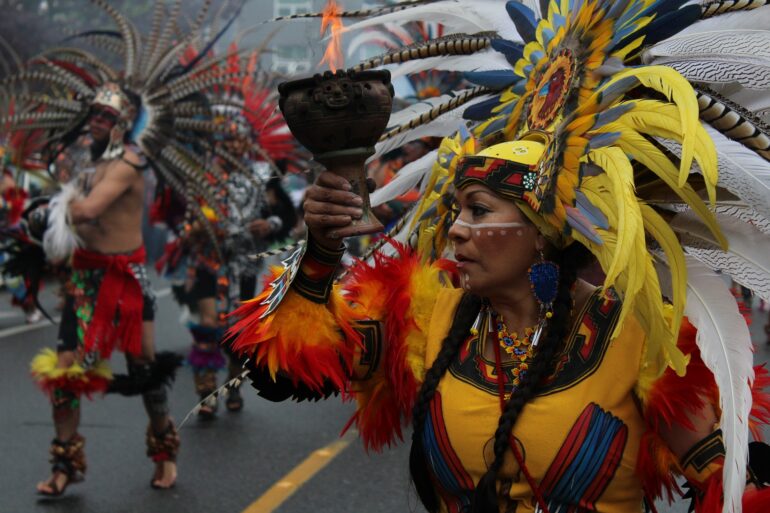TL;DR:
- Ethical concerns arise as AI, largely shaped by a white male-dominated field, risks appropriating Indigenous art and culture.
- Indigenous involvement in AI creation can mitigate exploitation and cultural misrepresentation.
- Real-world examples showcase the power of combining Indigenous knowledge with AI for environmental preservation.
- Gender and ethnic disparities within the AI industry highlight the need for more inclusive practices.
- Inclusivity and ethical AI can offer business opportunities while respecting Indigenous rights and data sovereignty.
Main AI News:
As the realm of artificial intelligence (AI) continues its rapid evolution, the imperative for ethical practices becomes increasingly clear. In a landscape largely shaped by white male dominance, there is a pressing need to ensure AI respects Indigenous rights and data sovereignty. This imperative extends beyond the realm of technology into the rich tapestry of Indigenous art and culture.
AI and Indigenous Art: A Complex Intersection
AI’s capacity to generate art has opened new frontiers, democratizing creativity. However, it has also raised concerns about cultural appropriation, particularly in the context of Indigenous art. The appropriation of Aboriginal art, predating AI, has been a contentious issue, often occurring without due attribution or acknowledgment, especially within the tourism industry.
The advent of AI exacerbates these concerns, as it empowers individuals to replicate Indigenous art without understanding its profound historical and cultural significance. This potential misuse not only affects Indigenous communities but also impacts artists from various backgrounds whose styles are misappropriated.
Indigenous art, deeply rooted in history, culture, and Country, carries a unique narrative that AI-generated art lacks. Furthermore, the financial rewards of AI-generated Indigenous art often bypass Indigenous artists, benefiting technology producers instead.
Empowering Indigenous Voices in AI
A viable solution emerges by including Indigenous voices in the creation and guidance of AI. This collaborative approach can significantly reduce the exploitation of Indigenous artists and their art. It is crucial to recognize that Indigenous communities are not only concerned about the use of their knowledge but also about the preservation of their cultural practices and rights.
Integrating Knowledge and Technology
In various parts of the world, Indigenous people are already at the forefront of AI research that combines traditional knowledge with modern technology. For instance, in the Kakadu wetlands, rangers are using AI alongside Indigenous knowledge to protect their Country from the invasive para grass, which is adversely affecting magpie geese populations.
This collaborative effort, involving Traditional landowners, rangers, and researchers, harnesses geographically-specific Indigenous knowledge to address environmental challenges. These initiatives underscore the significance of Indigenous-led approaches in safeguarding biodiversity.
Similarly, in Sanikiluaq, Canada, the PolArtic project blends scientific data with Indigenous knowledge to manage fisheries impacted by changing climate patterns. These examples demonstrate how Indigenous knowledge can provide solutions to complex ecological issues caused by the global climate crisis.
The Power of Inclusivity
AI, while a powerful tool, is only as effective as the data that informs it. The success of projects like those in Kakadu and Sanikiluaq lies in their utilization of Indigenous knowledge, shared by individuals with deep ancestral connections to their environments. However, a glaring disparity exists in the AI industry’s composition, with a lack of diversity noted in both gender and ethnicity.
Efforts to address these disparities must be comprehensive. In Australia, for instance, a recent discussion paper highlighted racial and gender biases in AI, particularly in predicting criminal behavior. While advisory groups and consultation processes were discussed as potential solutions, more in-depth exploration is needed.
Conclusion:
Embracing Indigenous knowledge and promoting ethical AI practices not only addresses pressing cultural and societal concerns but also opens up new business opportunities. A market that prioritizes inclusivity and respects data sovereignty stands to benefit from innovation that aligns with ethical principles, fostering authenticity and cultural preservation.

